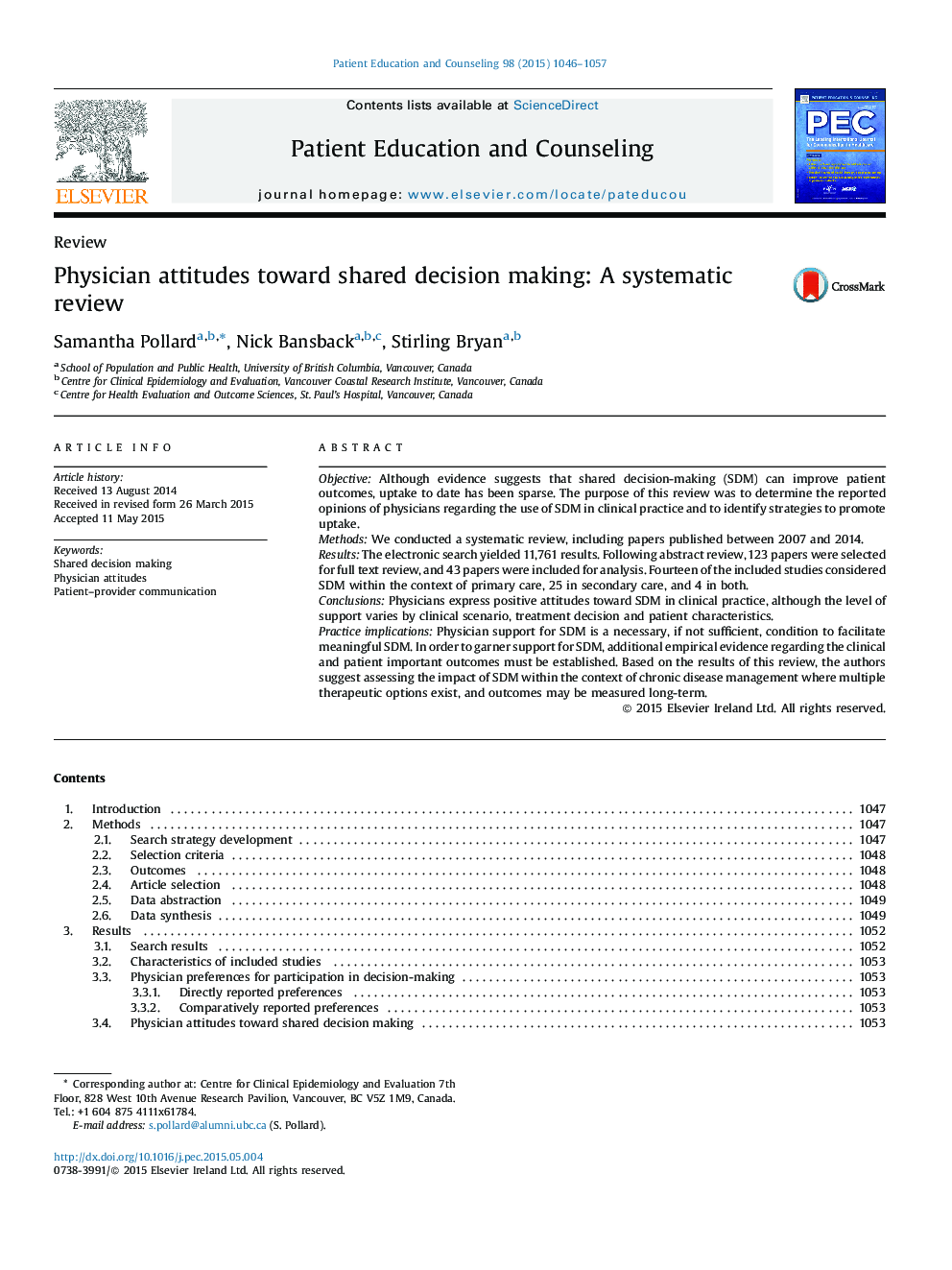| Article ID | Journal | Published Year | Pages | File Type |
|---|---|---|---|---|
| 3813182 | Patient Education and Counseling | 2015 | 12 Pages |
•We conducted a review of physicians’ attitudes toward shared decision making.•In general, physicians express positive attitudes toward SDM in clinical practice.•Level of physician support varies by clinical scenario and patient characteristics.•SDM should be considered for decisions concerning chronic disease management.
ObjectiveAlthough evidence suggests that shared decision-making (SDM) can improve patient outcomes, uptake to date has been sparse. The purpose of this review was to determine the reported opinions of physicians regarding the use of SDM in clinical practice and to identify strategies to promote uptake.MethodsWe conducted a systematic review, including papers published between 2007 and 2014.ResultsThe electronic search yielded 11,761 results. Following abstract review, 123 papers were selected for full text review, and 43 papers were included for analysis. Fourteen of the included studies considered SDM within the context of primary care, 25 in secondary care, and 4 in both.ConclusionsPhysicians express positive attitudes toward SDM in clinical practice, although the level of support varies by clinical scenario, treatment decision and patient characteristics.Practice implicationsPhysician support for SDM is a necessary, if not sufficient, condition to facilitate meaningful SDM. In order to garner support for SDM, additional empirical evidence regarding the clinical and patient important outcomes must be established. Based on the results of this review, the authors suggest assessing the impact of SDM within the context of chronic disease management where multiple therapeutic options exist, and outcomes may be measured long-term.
